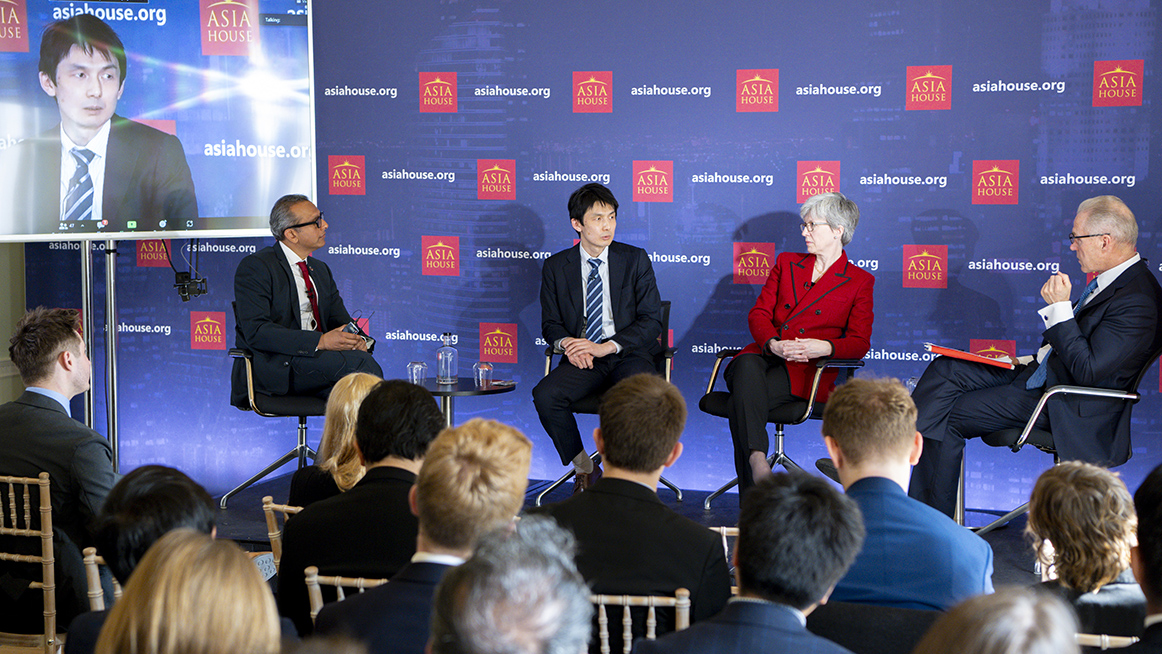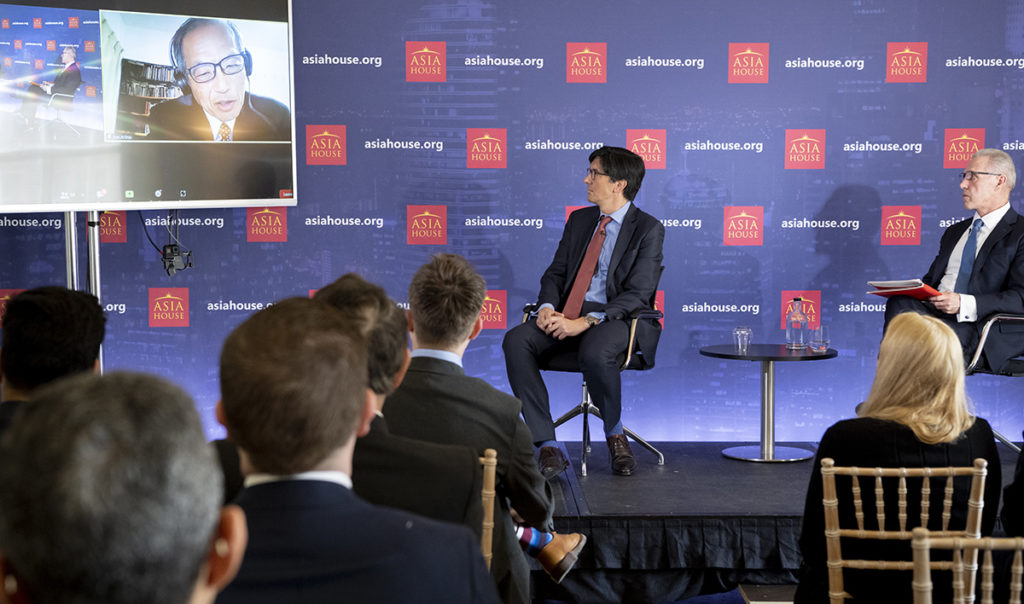Driving commercial and political engagement between Asia, the Middle East and Europe
Driving commercial and political engagement between Asia, the Middle East and Europe
Driving commercial and political engagement between Asia, the Middle East and Europe

The UK-Japan relationship is becoming increasingly important as geopolitical and economic challenges put the global response to climate change at risk, experts told an Asia House conference today.
‘Japan-UK Climate Cooperation Beyond COP26’ was convened in partnership with the Embassy of Japan in the UK against a backdrop of energy price shocks – due in part to the conflict in Ukraine – and ongoing economic scarring from the COVID-19 pandemic.
“There are immense geopolitical challenges, born particularly of the recent tragedy of Ukraine,” Asia House Chairman Lord Green said during the conference’s opening remarks.
“However, climate change hasn’t gone away, it won’t go away, and unless we address it, it will loom ever larger and have ever more serious impacts on our businesses, geopolitical relationships, and our own individual lives.”
The close, strategic relationship between Japan and the UK has “become more important than ever,” Lord Green said.
This was something that Junichi Yamada, Executive Senior Vice President, Japan International Cooperation Agency (JICA), highlighted in a keynote speech, warning that the ongoing pandemic and current geopolitical dynamics “should not slow down” the world’s response to climate change.
Speaking from Tokyo at the hybrid event, Yamada noted the “major achievement” of the UK-hosted COP26, and outlined Japan’s broader strategy to tackle climate change.
The crisis in Ukraine is inevitably forcing countries to review their energy strategies and will likely see a “set back” in climate change mitigation, Robert Falkner, Research Director at the Grantham Institute, told the conference. Yet the transition to net zero could actually play into national security strategies by freeing economies from a reliance on countries that use energy exports for geopolitical leverage.
“If we accelerated the transition now towards a fossil fuel free world, we wouldn’t be so dependent on countries who use their control over oil, coal and gas for geopolitical reasons,” Falkner said. “The net zero transition will help us in the long term.”
 However, the Ukraine crisis will have broader negative effects on climate mitigation, as highlighted by Arima Jun, Senior Policy Fellow on Energy and Environment, ERIA, Project Professor Graduate School of Public Policy (GraSPP), University of Tokyo, who joined the panel from Japan.
However, the Ukraine crisis will have broader negative effects on climate mitigation, as highlighted by Arima Jun, Senior Policy Fellow on Energy and Environment, ERIA, Project Professor Graduate School of Public Policy (GraSPP), University of Tokyo, who joined the panel from Japan.
Jun suggested that energy price hikes and the war in Ukraine could push the world economy “into a bad shape,” with fewer resources available for developing countries – something which would undermine the good work done at COP26 on developing finance packages to support developing nations in their energy transitions, Jun said.
Nick Bridge, Special Representative for Climate Change at the UK Foreign, Commonwealth and Development Office, identified a range of areas where Japan and the UK can enhance collaboration on climate change, including across electricity market reform, offshore wind and the auto sector. Japan’s historic strength in innovation and technology could play a particularly key role, Bridge said, with Japan having “an extraordinary opportunity to lead this next phase” of the net zero transition.
Bridge was joined on the panel by Junichiro Otaka, Director, Climate Change Division, International Cooperation Bureau, Ministry of Foreign Affairs, Japan, who agreed that technologies will be essential to the transition. Without technological innovation and cooperation from high green house gas emitting countries, it will be difficult to achieve a net-zero society, he said.
“Without innovation we will not be able to achieve what we need to achieve.”
However, public support will also be essential in meeting climate aims, with Otaka outlining efforts in Japan to engage younger audiences on environmental issues through social media. Awareness of climate change is spreading in Japan among various sectors including government, large corporations, small and medium-sized enterprises, and local governments, he said. Otaka also applauded the UK’s significant contribution to COP26, noting that Japan was a strong partner in that initiative.
Much of the required innovation will come from the private sector, but there needs to be stronger alignment between businesses and governments, Ram Ramachander, Chief Digital Officer and Chief Commercial Officer, Social Innovation Business Division EMEA Hitachi Europe Ltd, said, using electric vehicles (EV) as an example.
“The EV market is driving massive growth, and nothing is holding that back,” he said. “The private sector can absolutely take the lead… but there needs to be a much clearer collaboration between government, businesses like us, and finance.” A government-led masterplan for the EV sector will help remove investment risk, leading to acceleration, Ramachander said.
Having robust regulations and standards around data will also be crucial, Vanessa Havard-Williams, Partner, Global Head of Environment and Climate Change, Linklaters, told the conference, adding that more needs to be done to enable innovation to thrive in developing markets in Asia. “There is clearly a massive need for multilaterals to engage, particularly in relation to adaptation,” Havard-Williams said.
Government engagement with the private sector on climate change has been broadly positive, according to Tatsunori Matsubara, Chief Representative in London, Japan Bank for International Cooperation (JBIC), who identified the value of COP26 in meeting this aim.
“COP26 was a really good venue to send a signal to the private sector and they understand what they need to do,” Matsubara said. “They are trying to find business opportunities and are trying to think about how to secure financing.”
Moderated by Asia House Chief Executive Michael Lawrence, the conference marshalled views and insights from some of the world’s leading thinkers on Japan-UK relations at a crucial time for climate change mitigation.
Find out more about events and positioning opportunities at Asia House.
